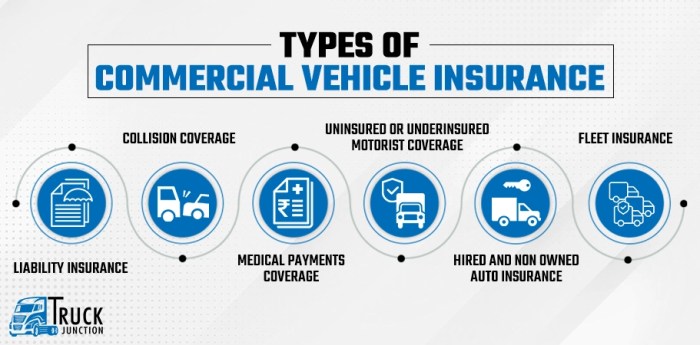Embark on a journey to understand the ins and outs of selecting the right business insurance. From assessing risks to customizing policies, this guide has got you covered.
Exploring the various types of insurance, researching providers, and managing costs are just a few steps towards safeguarding your business effectively.
 Assessing your business risks is crucial when it comes to choosing the right insurance coverage. By understanding your business needs, you can protect your company from potential financial losses and unforeseen circumstances.
Assessing your business risks is crucial when it comes to choosing the right insurance coverage. By understanding your business needs, you can protect your company from potential financial losses and unforeseen circumstances.
 When it comes to protecting your business, having the right insurance coverage is crucial. There are different types of business insurance available, each serving a specific purpose to safeguard your company from various risks and liabilities.
When it comes to protecting your business, having the right insurance coverage is crucial. There are different types of business insurance available, each serving a specific purpose to safeguard your company from various risks and liabilities.
 When it comes to business insurance, cost is a significant factor that needs to be carefully considered. Understanding the various factors that influence the cost of business insurance can help you make informed decisions to protect your business without breaking the bank.
When it comes to business insurance, cost is a significant factor that needs to be carefully considered. Understanding the various factors that influence the cost of business insurance can help you make informed decisions to protect your business without breaking the bank.
Understand Your Business Needs
 Assessing your business risks is crucial when it comes to choosing the right insurance coverage. By understanding your business needs, you can protect your company from potential financial losses and unforeseen circumstances.
Assessing your business risks is crucial when it comes to choosing the right insurance coverage. By understanding your business needs, you can protect your company from potential financial losses and unforeseen circumstances.
Common Risks Faced by Different Businesses
- Property damage due to natural disasters or accidents
- Liability issues from customer injuries or lawsuits
- Business interruption from unexpected events
- Cybersecurity threats and data breaches
Size and Type of Business Influence on Insurance Needs
- A small business may have different insurance needs than a large corporation
- A technology company may require specialized cyber insurance
- A retail store may need coverage for inventory and customer liability
Key Factors to Consider in Evaluating Your Business Needs
- Industry-specific risks and regulations
- Revenue and assets that need protection
- Number of employees and their roles in the business
- Location of the business and exposure to certain risks
Types of Business Insurance
 When it comes to protecting your business, having the right insurance coverage is crucial. There are different types of business insurance available, each serving a specific purpose to safeguard your company from various risks and liabilities.
When it comes to protecting your business, having the right insurance coverage is crucial. There are different types of business insurance available, each serving a specific purpose to safeguard your company from various risks and liabilities.
General Liability Insurance
General liability insurance is essential for all businesses, as it provides coverage for claims of bodily injury, property damage, and advertising injury. This type of insurance protects your business from lawsuits and helps cover legal expenses.Property Insurance
Property insurance is designed to protect your business property, including buildings, equipment, inventory, and furniture, from damage or loss due to fire, theft, vandalism, or other covered perils. It helps ensure that your business can recover quickly in the event of a disaster.Professional Liability Insurance
Professional liability insurance, also known as errors and omissions insurance, is crucial for businesses that provide professional services or advice. This type of insurance protects against claims of negligence, errors, or omissions that result in financial harm to clients.Industry-Specific Insurance Policies
Certain industries may require specialized insurance policies to address unique risks. For example, contractors may need contractor's liability insurance, while healthcare providers may need malpractice insurance. It's essential to understand the specific insurance needs of your industry to ensure comprehensive coverage.Examples of Essential Insurance Scenarios
A customer slips and falls in your store, resulting in a lawsuit General liability insurance would cover the medical expenses and legal fees associated with the claim. A fire breaks out in your office, causing damage to your equipment and inventory Property insurance would help cover the cost of replacing or repairing the damaged items. A client sues your consulting firm for providing inaccurate advice that led to financial losses Professional liability insurance would cover the legal expenses and damages awarded in the lawsuit.Research Insurance Providers
When it comes to selecting business insurance, choosing a reputable insurance provider is crucial. A reliable insurance company can offer you the coverage you need and provide support when you require it the most.Importance of Choosing a Reputable Insurance Provider
- Check the company's reputation by reading reviews and testimonials from other customers.
- Look into the insurance provider's ratings and financial strength to ensure they can meet their commitments.
- Consider the customer service offered by the insurance company as you may need assistance with claims or policy-related queries.
Tips on Researching Insurance Companies
- Utilize online resources like review websites and consumer reports to gather feedback on different insurance providers.
- Consult with other business owners or industry experts for recommendations on reliable insurance companies.
- Take note of any complaints or negative reviews about the insurance provider to make an informed decision.
Factors to Consider when Evaluating Insurance Companies
- Financial Stability: Ensure the insurance company has a strong financial standing to fulfill their obligations.
- Policy Coverage: Evaluate the types of coverage offered and whether they align with your business needs.
- Premium Costs: Compare pricing from different insurance providers to find a balance between cost and coverage.
- Claims Process: Review the ease and efficiency of the insurance company's claims process to avoid unnecessary delays.
Cost Considerations
 When it comes to business insurance, cost is a significant factor that needs to be carefully considered. Understanding the various factors that influence the cost of business insurance can help you make informed decisions to protect your business without breaking the bank.
When it comes to business insurance, cost is a significant factor that needs to be carefully considered. Understanding the various factors that influence the cost of business insurance can help you make informed decisions to protect your business without breaking the bank.
Factors Influencing Cost
- Industry Risk: Different industries have varying levels of risk associated with them, impacting the cost of insurance. For example, a construction company may pay higher premiums compared to a consulting firm.
- Business Size: The size of your business, including revenue and number of employees, can also affect insurance costs. Larger businesses with more assets to protect may pay higher premiums.
- Location: Your business's location plays a role in determining insurance costs, as factors like crime rates, weather risks, and local regulations can impact pricing.
Premiums, Deductibles, and Coverage Limits
When purchasing business insurance, it's essential to understand the concepts of premiums, deductibles, and coverage limits:- Premiums:The amount you pay for insurance coverage, typically on a monthly or annual basis. Lower premiums usually mean less coverage, while higher premiums offer more comprehensive protection.
- Deductibles:The out-of-pocket amount you must pay before your insurance coverage kicks in. Choosing a higher deductible can lower your premiums but may require you to pay more in the event of a claim.
- Coverage Limits:The maximum amount your insurance policy will pay out for a covered claim. It's crucial to select coverage limits that adequately protect your business assets and liabilities.
Balancing Coverage Needs with Budget
It's important to strike a balance between your coverage needs and budget constraints when selecting business insurance:- Assess Your Risks: Identify the specific risks your business faces to determine the necessary coverage. Prioritize essential coverage while considering cost-effective options for lower priority risks.
- Compare Quotes: Obtain quotes from multiple insurance providers to compare coverage options and pricing. Look for insurers that offer customizable policies to tailor coverage to your budget.
- Review Regularly: As your business grows and evolves, regularly review your insurance coverage to ensure it aligns with your current needs and budget.
Reducing Insurance Costs
There are strategies you can implement to reduce insurance costs without compromising coverage:- Bundling Policies: Consider purchasing multiple types of insurance from the same provider to qualify for discounts on premiums.
- Risk Management: Implement risk management practices to reduce the likelihood of claims, which can lead to lower premiums over time.
- Shop Around: Periodically review your insurance policies and obtain quotes from other providers to ensure you're getting the best rates for the coverage you need.
Customization and Tailoring
Customizing insurance policies to suit your business is crucial for ensuring adequate coverage and protection. Every business is unique, with different risks and needs, so tailoring your insurance plan can help address specific concerns and vulnerabilities. By working closely with insurance providers, businesses can negotiate policy terms and coverage to create a personalized insurance plan that fits their requirements perfectly.Examples of Tailoring Insurance Coverage
- Adding specialized coverage for unique risks related to your industry, such as cyber liability insurance for tech companies.
- Adjusting coverage limits based on the size and scope of your business operations.
- Including additional endorsements or riders to cover specific assets or liabilities not typically included in standard policies.
Negotiating Policy Terms and Coverage
- Clearly communicate your business needs and risks to insurance providers to ensure they understand your requirements.
- Compare quotes from multiple insurers to leverage competitive pricing and coverage options.
- Seek advice from insurance brokers or consultants to navigate complex policy terms and negotiate favorable conditions.
Benefits of Personalized Insurance Plans
- Enhanced protection against unique risks that may not be covered by standard insurance policies.
- Cost-effective coverage tailored to your specific needs, avoiding unnecessary premiums for irrelevant risks.
- Potential for better claims experience and faster resolution due to the personalized nature of the policy.










